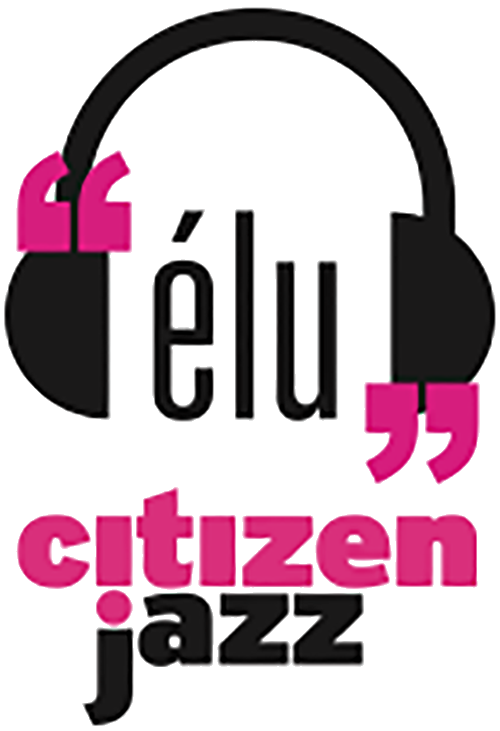Trio Kontraszt From Dionysian Sound Sparks to the Silence of Passing
This CD contains new compositions. Even this time, the basic creative principal has not radically changed: the development of basic musical ideas is shown by clearly structured compositions, mixed with organic, free improvisations. We offer our listeners not a hodgepodge from this musically unparalleled region, enriched with jazz harmonies; rather, we try to approach music as Bartók did. In line with this, these works were inspired by the ancient roots of musical tradition in the Carpathian Basin, but our music does not quote or reproduce; respecting the ancient methodology, it attempts to capture what can be expressed of archaicism using the means we have today. It is neither a desert island, nor an anachronism, because today even the wildest avant-gardism is just one of the things on the syllabus in the conservatoires.
Stevan Kovacs Tickmayer
Artists
Stevan Kovacs Tickmayer – piano, prepared piano, harmonium and keyboards
István Grencsó – tenor & soprano saxophones, bass clarinet, flute
Szilveszter Miklós – drums & percussion
About the album
All compositions by Stevan Kovacs Tickmayer except track 8 by István Grencsó and track 2 by Stevan Kovacs Tickmayer, István Grencsó and Szilveszter Miklós
Recorded by Zsolt Kiss at BMC Studio, Budapest on 16-17 July, 2016
Mixed and mastered by Stevan Kovacs Tickmayer
Artwork: László Huszár / Greenroom
Produced by László Gőz
Label manager: Tamás Bognár
Reviews
Ken Waxman - JazzWord (en)
George W. Harris - Jazz Weekly (en)
Raul Da Gama - JazzdaGama (en)
Franpi Barriaux - CitizenJazz (élu) (fr)
Claude Loxhay - Jazzhalo (fr)
Thierry Giard - CultureJazz (fr)
Jean-Jacques Birgé - Mediapart (fr)
Karl Lippegaus - Fono Forum **** (de)
Reinhard Köchl - JazzThing (de)
Mischa Andriessen - Jazz&mo' (nl)
Georges Tonla Briquet - Jazzhalo (Round up 2017) (nl)
Mischa Andriessen - Trouw (nl)
Matti Komulainen - Jazzrytmit (fi)
Robert Ratajczak - Long Play (pl)
Jan Hocek - JazzPort (cz)
Z.K. Slabý - His Voice (cz)
Peter Dobšinský - skJazz.sk **** (sk)
Végső Zoltán - Élet ÉS Irodalom (hu)
Bércesi Barbara - Gramofon ***** (hu)
Olasz Sándor - Riff (hu)
Márton Attila - Demokrata (hu)
Dr. Nagy Sándor - Jazzma (hu)
Trio Kontraszt: From Dyonisian Sound Sparks to the Silence of Passing
The album is available in digital form at our retail partners
I met István Grencsó and his fellow musicians (Mihály Dresch, Róbert Benkő, Tamás Geröly…), who at the time were part of the Grencsó Collective, at the Novi Sad Jazz Festival, in 1985 if I remember rightly. With all these excellent musicians there soon began a period of several years which was highly productive and rich, and I for one looked on this joining of creative forces as a great honour. Time passed, the circle of musician friends grew, and by then I felt keenly that this was not merely a musical cooperation, but that a musical language was beginning to develop that would have a decisive influence of life-long importance.
In the mid-1980s, a very lively and exciting free music scene took shape between Novi Sad and Budapest, thanks mainly to the organizational abilities and goodwill of Zoltán Bicskei from Magyarkanizsa, György Czabán from Budapest and in no small measure Jenő Hartyándi from Győr. Concerts of free music followed heel to toe at the Novi Sad Jazz Festival and the Petőfi Sándor Cultural Centre, in the Közgáz Klub (the Economics University Club) in Budapest and in Győr. The Novi Sad Radio and Television recorded a great many of these events, while the “Hungarian section” made short films about the concerts and the musicians. In Győr, there was the excellent Jazz Stúdium, a kind of “samizdat” group, and the “Yugo section” regularly published interviews and analyses in the columns of the Novi Sad-based publications Magyar Szó and Új Symposion. At the time, in the middle of the daily fierce criticism directed at the former system, we had no idea that in a future free system we could not even dream of these opportunities.
And then came the two-edged sword of liberation: after fifty years of Soviet oppression, Hungary became free, while Yugoslavia shed its own skin and sought the way out in a meaningless and cruel self-destructive civil war.
The rules of the game changed from one day to the next: In Hungary, almost anything that was not mass-produced and immediately consumable vanished, to be replaced by “Coca-Cola culture”; the Yugoslavian wars prompted a whole host of young people to emigrate, and the muses fell silent for some time. I too was among the émigrés. I went West, and settled in what was for me a new and alien environment, where nobody spoke (or speaks) my musical mother tongue. The distance and the changes in political regimes took their toll, and I soon lost contact with my former fellow musicians, but also with myself. It seemed as though my musical heritage had got lodged somewhere inside the borders of the sunken former country. I needed time to rethink and ponder my relationship to music, and to position myself on the redrawn map. The silence lasted right up until 2011, when with István and Tamás Geröly (who in the trio was recently replaced by Miklós Szilveszter, an excellent drummer from the younger generation), we played together once more in the Mediawave Festival. To this day, from time to time, we continue to develop and nurture the work we started together five years ago, and each time we fuse new experiences into our joint music-making, thus enriching and expanding our musical grammar.
This CD contains new compositions. Even this time, the basic creative principal has not radically changed: the development of basic musical ideas is shown by clearly structured compositions, mixed with organic, free improvisations. We offer our listeners not a hodgepodge from this musically unparalleled region, enriched with jazz harmonies; rather, we try to approach music as Bartók did. In line with this, these works were inspired by the ancient roots of musical tradition in the Carpathian Basin, but our music does not quote or reproduce; respecting the ancient methodology, it attempts to capture what can be expressed of archaicism using the means we have today. It is neither a desert island, nor an anachronism, because today even the wildest avant-gardism is just one of the things on the syllabus in the conservatoires.
Our music welcomes chat, friendship, altercation, or discussion with the idiom, the mode of expression, and worldview of the proponents of the new tradition. Here I am thinking primarily of a leading figure of Hungarian jazz, György Szabados, but quite often the eastern wings of Europe’s new musical tradition come to the fore, such as the Ligeti-Lutosławski-Schnittke triangle, but naturally others too.
Stevan Kovacs Tickmayer
STEVAN KOVACS TICKMAYER
Stevan Kovacs Tickmayer was born in 1963 in Novi Sad (in the then Yugoslavia), and when civil war broke out in Yugoslavia he moved to France.
He graduated in composition in 1987 at the Academy of Arts in Novy Sad as a pupil of Rudolf Brucci. He continued his studies under Louis Andriessen and Diderick Wagenaar at the Royal Conservatoire in The Hague. In 1996 and 1997 in Paris and Amsterdam he studied with Márta Kurtág and György Kurtág, and over time developed a lasting friendship with them.
Between 1984 and 1988 he was on the editorial board of Új Symposion, a Novy Sad journal for culture and the arts, which regularly carried his articles about music. In the same period he was the main organizer of two international arts festivals held in Novy Sad.
From the mid-1980s until the early 90s he was actively interested in improvisational music, and his attraction to this kind of music-making brought him together with outstanding musicians such as György Szabados, István Grencsó, Mihály Dresch, Paul Termos, Peter Kowald, Fred Frith, Chris Cutler, Valentin Clastrier, Ernő Király, Boris Kovač, and many others.
In 1986 he founded the band Tickmayer Formatio, in which he used both musicians with classical training, and contemporary improvisational musicians. He wrote compositions for the productions of the dance theatre of France-based choreographer József Nagy, as live incidental music, and in the period from 1990 to 1997 he performed them with Tickmayer Formatio.
Personally invited by Gidon Kremer, he has several times been composer in residence at the Lockenhauser Kammermusikfest, and the Sigulda Music Festival, where many famous musicians presented or played his compositions. He has been invited by the art residencies Art Omi and Civitella Ranieri Foundation in New York, and several times has been one of the teachers at the international composing summer school Cortona New Music Sessions.
His works have been released on the labels ReR Megacorp, ECM New Series, Nonesuch, and Leo Records.
tickmayer.com
ISTVÁN GRENCSÓ
One of the outstanding figures of Hungarian avant-garde jazz, István Grencsó was born in 1956 in Nyíregyháza, Hungary. His career began in 1979 with the Masina Jazz Csoport.
He became more widely known in the 1980s as a member of the Dresch Quartet, and as the partner of György Szabados, the father-figure of Hungarian improvised jazz.
In 1985 he founded Grencsó Collective, which (though its name has changed several times) has been his number one band ever since. He has recorded with famous international musicians such as Paul Termos, Peter Kowald, Lewis Jordan, Tobias Delius, and Rudi Mahall. He was a member of MAKUZ led by György Szabados, and more recently has been a constant partner of Barnabás Dukay, an outstanding figure in Hungarian contemporary music.
In 2015 with the Collective they released double CD with six compositions by György Szabados. He is a permanent member of the Araraton Trio and Kampec Dolores. The most recent imprint of his musical rovings is the CD Forecast / Előrejelzés, released by Prepost Records in 2017, which he recorded in a duo with Bálint Bolcsó.
Grencsó’s repertoire is extremely varied. As a composer he is considered the master of formal changes. As well as experiments in improvised music he has arranged countless jazz standards, and regardless of current trends and fashions has played pop, rock, and ethno music. He also reinterpreted Hungarian dance music of the 1960s, chansons, and the suite, which veers towards composed classical music. From the trio to big band, he has featured and made recordings with many different line-ups, in which, with his individual vision, he makes various combinations of elements of musical trends from his broad aesthetic range.
In addition to the Grencsó Open Collective CDs released on the BMC label Homespun in Black and White (2009), Local Time (2011), Flat (2014), Marginal Music (2015) and the Trió Kontraszt albums, he has released other discs on the Bahia, Adyton and Hunnia Records labels.
grencso.hu
SZILVESZTER MIKLÓS
Szilveszter Miklós is an artist originating in Vojvodina. He was born in Muzslya (Mužlja) in Nagybecskerek (Zrenjanin, in the then Yugoslavia). He started his studies on the violin, then switched to drums in 1997. Years later he studied at the Ferenc Liszt University of Music in Budapet, but he considers his genuine schooling to have been the joint music-making with his friends.
He plays with famous Hungarian musicians such as István Grencsó, Róbert Benkő, Máté Pozsár, Péter Ajtai, Szilárd Mezei, Ákos Szelevényi, Mihály Dresch, Barnabás Dukay, Stevan Kovacs Tickmayer, Tibor Szemző, etc.
Since 2010 he has been a member of Grencsó Collective, with whom he has made several CDs. In 2015 the prestigious Hungarian magazine Gramofon awarded them Jazz Album of the Year.
He is a leading figure in the growing free music scene in Budapest, and plays in the AMP trio, in which he performs regularly in festivals in Hungary and internationally.
As well as playing with the important jazz musicians in Hungary, he regularly plays in various international line-ups, with such outstanding free-thinking musicians as Rudi Mahall, Johannes Bauer, Marco Eneidi, John Dikeman, Han Bennink, Jasper Stadhouders, and Peter Brötzmann.

